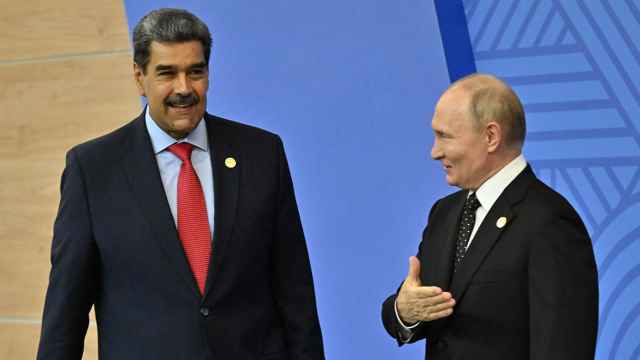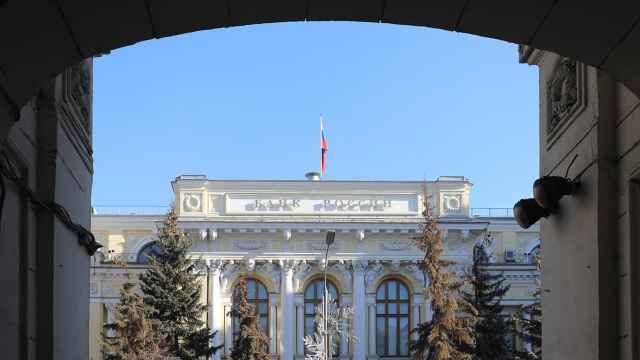Officials who are to work in anti-corruption departments will undergo special training, which will focus on curtailing the appearance of new bribe-takers, rather than finding and punishing existing ones.
By the end of the year, about 500 officials are slated to go through a course in the Russian Academy of Civil Service to increase their qualifications for fighting corruption. This is being done in the framework of the national plan for countering corruption, said Mikhail Mizulin, first deputy director of the academy's higher school of management.
The 36-hour training program is intended for managers and employees of new anti-corruption departments in the government, who will inspect income declarations as well as ensure that officials adhere to restrictions and inform their supervisors of attempted bribes.
President Dmitry Medvedev's first order on the organization of such a course was given a year ago, but the government did nothing about it, a Kremlin official said. On June 29, Medvedev signed an order requiring the academy to start the course within three months.
Coordinating the program was not simple, the official said. The Kremlin insisted that the course participants be given specific skills in inspecting income declarations, but Russia has no one experienced in such training.
The curriculum includes 10 hours of lectures and 26 hours of practical work, Mizulin said. Throughout the training, officials will have to learn how to cooperate with the police, because reports of bribery attempts must be passed on to the Interior Ministry for investigation, he said.
The trainees must also receive skills in applied psychology — the academy has developed a method for determining personality types that would be more inclined toward corrupt activities.
The Kremlin official said Investigative Committee chairman Alexander Bastrykin and Audit Chamber chairman Sergei Stepashin were candidates for teaching the course, but that the final list of trainers was unknown.
The main goal of the course is not to teach civil servants to uncover and punish corruption, but to ensure that officials do not become corrupt, the source said. Trainees will be taught about criminal investigations only in the final classes, the source said.
The curriculum development is being coordinated by the civil service directorate and the Kremlin, Mizulin said. The classes should start in September.
In December, a report on the anti-corruption lessons will be presented to the presidium of the president's Council on Fighting Corruption.
A Message from The Moscow Times:
Dear readers,
We are facing unprecedented challenges. Russia's Prosecutor General's Office has designated The Moscow Times as an "undesirable" organization, criminalizing our work and putting our staff at risk of prosecution. This follows our earlier unjust labeling as a "foreign agent."
These actions are direct attempts to silence independent journalism in Russia. The authorities claim our work "discredits the decisions of the Russian leadership." We see things differently: we strive to provide accurate, unbiased reporting on Russia.
We, the journalists of The Moscow Times, refuse to be silenced. But to continue our work, we need your help.
Your support, no matter how small, makes a world of difference. If you can, please support us monthly starting from just $2. It's quick to set up, and every contribution makes a significant impact.
By supporting The Moscow Times, you're defending open, independent journalism in the face of repression. Thank you for standing with us.
Remind me later.





